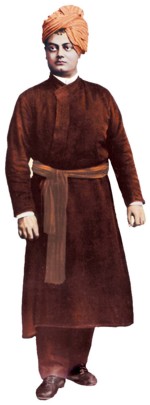
Passion is the Key to Life |
“It’s not enough to be busy. The question is, what are we busy about?” said Henry David Thoreau. Happiness comes from following our passion. Richard Bach has said, “The more I want to get something done, the less I call it work.” Excellence comes from work that we are passionate about. Knowing what to do is certainly important, but knowing why we do it fuels our motivation, our passion. “There is no passion to be found in playing small – in settling for a life that is less than what you are capable of living,” has been advocated by Nelson Mandela |
A strong passion enables us to find a way to achieve our goals or any goal. Passion turns our stumbling blocks into stepping stones. Not only does passion ignite our pursuit of excellence, passion also makes the journey more fun!
All men and women are born, live, suffer and die; what distinguishes us from anothers are our dreams, whether they be dreams about worldly or unworldly things, and what we do to make them come about. |
We do not choose to be born. We do not choose our parents. We do not choose our historical epoch, the country of our birth, or the immediate circumstances of our upbringing. We do not, most of us, choose to die; nor do we choose the time and conditions of our death. But within this realm of choicelessness, we do choose how we live. As Patanjali Muni, founder of Yoga, rightly said centuries ago, "When you are inspired by some great purpose, some extraordinary project, all your thoughts break their bounds… and you discover yourself to be a greater person by far than you ever dreamed yourself to be.” Passion is the Key. |
|
||
Right attitude is all about being passionate about what we do |
||
There are three dimensions to success; those of attitude, skill and knowledge. Many people do have all the knowledge in the world and yet fail to achieve anything due to lack of skills, most often in dealing with others, and the right attitude. There are the second set of people who have the knowledge as well as the skill but altitudes elude them due to the lack of a right attitude. Think Big In his first year in the automobile business, this man went bankrupt. Two years later, his second company also failed, but he did not give up. His third, however, made him a household name. The right attitude helped Henry Ford achieve global success. Looking at these examples closely, one will realize that attitude has one key dimension-passion. The right attitude is all about being passionate about what we do. All stories of success have one common element: passion. Passion for what they want to achieve, passion to not wander away from the goal and passion to finally see it through. Charged with creativity |
self-driven and motivated. They are so involved in their work that once they have determined their goals they are prepared to try different approaches. They are creative people, being ingenious, adaptable and innovative with whatever is at hand to solve the problem to achieve the objective. It is about dreaming of taking a country on the path to freedom after years of exploitation. It is about putting your life at stake for this cause and ending up becoming a Mahatma: Mahatma Gandhi. Such people use failure as a learning experience. Their standards are high. As soon as they attain one goal, they set their sights on a new goal, perhaps a little more difficult one.
Successful people don't like being bound by routines and schedules. They are active, restless and like to take the initiative. They wouldn't give up |
It is about being Abraham Lincoln. All these events, which to a common man would seem to be failure, were to Abraham Lincoln stepping stones to a future that he passionately dreamt of. These people enjoy their work thoroughly. They often give their work more preference over bodily needs. That doesn't mean that they ignore bodily needs but while at work they often forget when it is time for lunch, etc. Work often is their lunch. Risk versus challenge These people with passion for work usually demonstrate some interpersonal competence and enjoy long-term relationships. This is a key behavioral trait of people who achieve success. They neither like excessive odds against their success nor too easy tasks. The reasonable possibility of failure excites them to put in increased efforts. On the other hand, people lacking passion prefer an easy task to ensure success and avoid chances of failure. Charles Dickens faced abject poverty and adversity. But he was able to sustain his passion for writing and, success could not elude him for long. Probably, Charles Dickens is a classic example of a person who passionately believed in two words - I can. (courtesy Business Line) |
|
| Editor's Note |
Whether you are an ordinary person or an extra ordinary person, you can do without passion only if you can do without life because it is passion alone that determines the extent to which you are alive.
Passion is a fuel for growth of life. Let's live passionately to achieve the highest goals of our lives. - Team Alive |
|
||||
| Passionate Leader | ||||
|
||||
| Alive Archives | ||||
To View Alive Archives, Please Click here>>>
|
You
receive this newsletter because you may have registered your name
with us. |
© Copy Right by Oasis Self
Leadership Education for Community Development, Vadodara, Gujarat,
India. |










